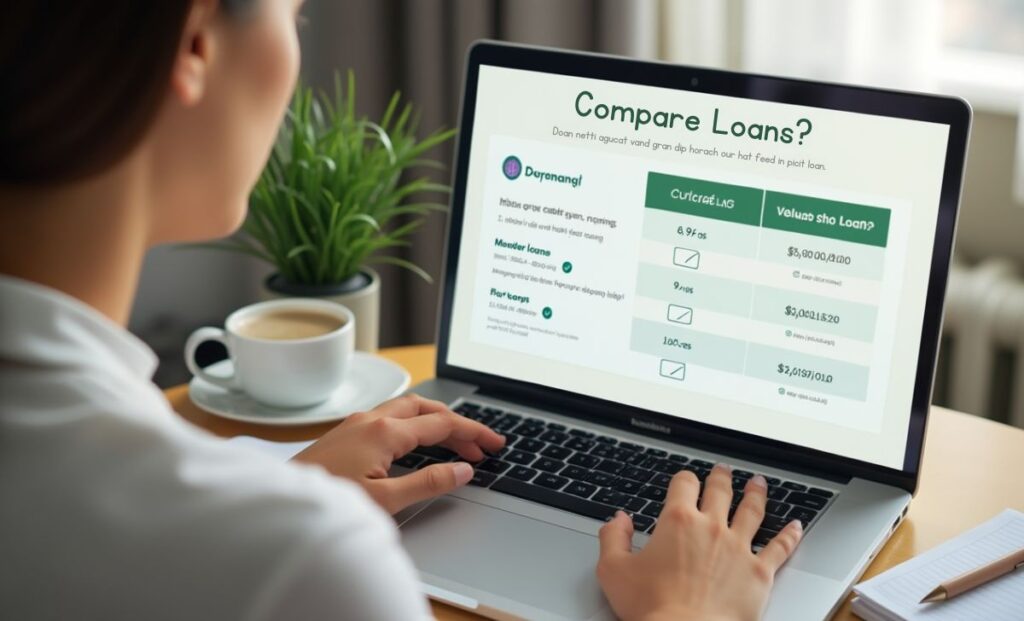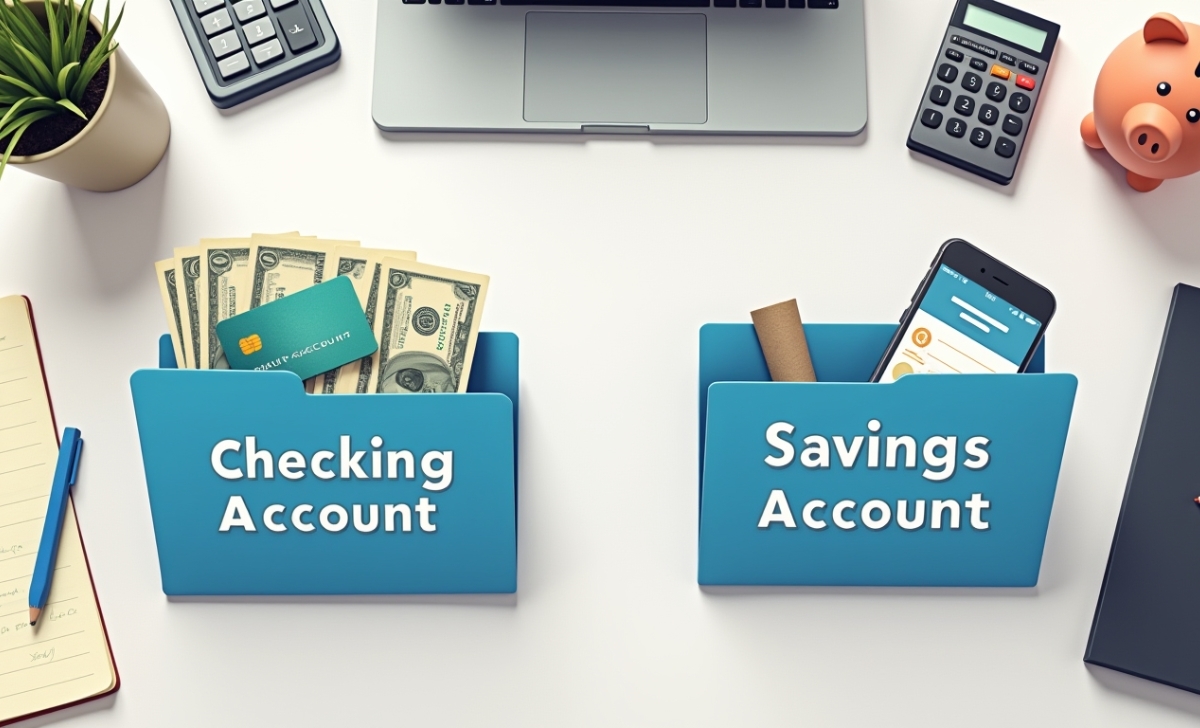Are you a member of the Vietnamese community in California looking for Vietnamese personal loans private lenders California but unsure of where to start? With the rising costs of living and the unique financial needs faced by many Vietnamese residents, finding the right lending option can be challenging. Traditional banks may not always offer the flexibility or personalized support you’re seeking. That’s where private lenders come in—providing tailored loan solutions specifically designed to meet the needs of diverse communities, including yours.
In this blog post, we’ll explore everything you need to know about Vietnamese personal loans and private lenders in California. From understanding how private lenders operate and the types of loans they offer to knowing the benefits and risks associated with them, this guide will equip you with the knowledge to make an informed decision.
Are you ready to discover the best ways to access funding for your personal or business needs within the Vietnamese community? Let’s dive in and find the right solution that works for you!
key takeaways
- Private loans provide a flexible, accessible option for the Vietnamese community in California, especially when traditional banks are not suitable.
- Private lenders often offer quicker loan approvals and personalized repayment terms compared to banks, making them an attractive choice for urgent needs.
- It’s crucial to verify the lender’s licensing through the California Financing Law (CFL) and the Department of Financial Protection and Innovation (DFPI) to ensure credibility.
- Borrowers should be aware of the potential risks, such as higher interest rates, shorter loan terms, and hidden fees, when choosing a private loan.
- Researching, comparing lenders, and understanding the loan agreement details are essential steps for securing the right loan and ensuring a successful borrowing experience.
Understanding vietnamese personal loans private lenders california

Are you curious about how personal loans work specifically for the Vietnamese community in California? Personal loans have become increasingly popular, especially among those looking for quick and flexible solutions that traditional banks may not provide. But before diving into the loan market, it’s essential to understand what Vietnamese personal loans are and why they are in such high demand.
Why Are Personal Loans in High Demand Among the Vietnamese Community?
California is home to one of the largest Vietnamese communities in the United States. With a thriving community comes diverse financial needs—ranging from funding small businesses to covering personal expenses like medical bills, education costs, or home renovations. Traditional banks often come with rigid requirements and slow approval processes that don’t fit everyone’s circumstances. This is where personal loans from private lenders become a game-changer.
Here’s why many in the Vietnamese community prefer personal loans:
- Fast Approval: Unlike traditional banks, private lenders can offer quick approvals, making it easier for borrowers to access funds when they need them the most.
- Flexible Terms: Private lenders often tailor loan terms, allowing Vietnamese borrowers to choose repayment options that suit their specific financial situations.
- Cultural Understanding: Many private lenders in California cater specifically to the Vietnamese community, understanding their unique cultural and financial needs, often providing services in Vietnamese for better communication.
What Are Vietnamese Personal Loans?
Simply put, Vietnamese personal loans are designed to support members of the Vietnamese community living in California. These loans, usually offered by private lenders, aim to provide flexible funding options that are more accessible than traditional bank loans. They often include features like lower minimum credit score requirements, fast processing, and the opportunity for personalized support.
Types of Personal Loans Available
When looking into Vietnamese personal loans, it’s important to know what types are available so you can choose the right option. Below are some common types:
- Unsecured Personal Loans:
- Ideal for those who prefer not to put up collateral.
- Offers flexibility for various personal needs, such as paying for medical expenses or consolidating debt.
- Secured Personal Loans:
- Often comes with lower interest rates.
- Requires collateral like a car or property, which may be suitable for larger loan amounts.
- Small Business Loans:
- Tailored for Vietnamese entrepreneurs wanting to start or expand their businesses.
- Provides funding with flexible repayment terms designed for business growth.
The Benefits of Private Lenders Over Traditional Banks
Why choose private lenders over traditional banks? It’s a question many Vietnamese borrowers ask. Private lenders bring several advantages:
- Lower Credit Requirements: Traditional banks often have strict credit score requirements, making it difficult for some individuals to qualify. Private lenders, however, may be more lenient and willing to work with borrowers who have varying credit backgrounds.
- Personalized Service: Private lenders in California often understand the unique needs of the Vietnamese community and are more likely to offer a personalized, client-centered approach. This means you can expect more flexibility and support throughout the borrowing process.
- Accessibility: With services often available in Vietnamese, communication becomes easier, building trust and making the process feel less daunting for those who may not be fluent in English.
Whether you’re considering a loan to fund a business, manage debt, or cover unexpected expenses, understanding these basics will help you make the best decision for your financial future. In the next section, we’ll dive deeper into how private lenders operate in California, so you know what to expect when exploring your loan options.
How Private Lenders Operate in California

If you’re considering taking a personal loan from a private lender in California, it’s essential to understand how these lenders operate and what sets them apart from traditional banks. Private lenders often provide the flexibility and speed that many borrowers are looking for, but it’s crucial to know the specifics of how they work, especially within California’s regulatory framework. Let’s break it down together.
How Do Private Lenders Differ from Banks?
Private lenders and banks both offer personal loans, but they operate under different models. While banks follow strict regulations and have a more standardized process, private lenders focus on providing tailored solutions. Here’s what you need to know:
- Flexible Requirements: Private lenders typically have less stringent credit score requirements compared to traditional banks, making it easier for borrowers with diverse financial backgrounds to qualify.
- Speedy Approval Process: Private lenders can often approve loans within days or even hours, whereas traditional banks may take weeks to process an application. This is ideal for borrowers needing urgent financial support.
- Customized Loan Terms: Private lenders have the flexibility to offer personalized loan terms. Whether you’re looking for a short-term loan or an extended repayment plan, they can adjust terms to fit your needs.
These factors make private lenders an attractive option, but how exactly do they operate under California’s regulations?
Regulatory Framework for Private Lenders in California
California has specific regulations for private lending that are designed to protect borrowers while ensuring a fair and competitive market. Private lenders must follow the rules set by the California Financing Law (CFL) and register with the Department of Financial Protection and Innovation (DFPI). This framework ensures that private lenders maintain transparency and adhere to fair lending practices.
Here are the key points to understand about private lending regulations in California:
- Licensing Requirements:
- Private lenders must be licensed under the CFL to operate legally. This licensing ensures that they meet state standards and provide loans responsibly.
- Interest Rate Caps:
- California has interest rate caps for certain types of loans. For personal loans under $2,500, private lenders cannot exceed a specified interest rate limit, protecting borrowers from predatory lending practices.
- Disclosure Obligations:
- Lenders must clearly disclose all fees, terms, and interest rates upfront. This transparency allows borrowers to make informed decisions without hidden surprises down the road.
By understanding these regulations, you can navigate the private lending market with confidence, knowing that you’re working with legitimate and compliant lenders.
Advantages of Private Lenders in the California Market
So, why choose private lenders given all the regulations and options available? The advantages are numerous, especially for Vietnamese borrowers looking for tailored financial solutions:
- Cultural Sensitivity: Many private lenders in California specifically serve the Vietnamese community, offering services in Vietnamese to make the borrowing process more comfortable and accessible.
- Opportunity for Negotiation: Unlike banks, private lenders often allow for negotiation on loan terms, interest rates, and repayment schedules. This gives you the power to choose terms that align with your financial goals.
- Access to Niche Loans: Private lenders may offer niche loan products that traditional banks do not. For example, if you’re a small business owner looking for a quick cash infusion or an individual with limited credit history, private lenders can provide options that are not available elsewhere.
Potential Drawbacks and What to Watch Out For
While private lenders offer many benefits, it’s also important to be aware of potential drawbacks:
- Higher Interest Rates: Although private lenders provide flexibility, their interest rates can be higher than those offered by traditional banks. This is something to consider when weighing your options.
- Shorter Loan Terms: Some private loans may come with shorter repayment periods, meaning higher monthly payments. Make sure you’re comfortable with the terms before signing any agreements.
- Risk of Unlicensed Lenders: Not all private lenders are legitimate. Always verify that a lender is licensed under the CFL and check reviews or ask for recommendations within the Vietnamese community to ensure credibility.
By understanding how private lenders operate within California, you can make an informed decision and choose a loan option that best suits your needs. In the next section, we’ll look at how to select the right private lender for you and what to watch out for during the decision-making process.
Choosing the Right Private Lender

Finding the right private lender can feel overwhelming, especially with so many options available in California. How do you know which lender is reliable? What should you be looking for to ensure you’re making the best choice for your financial needs? Let’s walk through the essential steps and factors you should consider when choosing the right private lender, tailored specifically for Vietnamese borrowers like you.
What to Consider When Selecting a Private Lender
Choosing a lender isn’t just about finding the lowest interest rate; it’s about finding the right fit for your specific situation. Here’s what to look out for:
- Reputation and Credibility:
- Research each lender’s background. Look for online reviews, testimonials, and ratings from past clients. Trusted lenders should have positive feedback and be transparent about their services.
- Check if the lender is licensed under the California Financing Law (CFL) and registered with the Department of Financial Protection and Innovation (DFPI). This ensures that they operate legally and follow ethical lending practices.
- Loan Options and Flexibility:
- Does the lender offer a range of loan products that fit your needs? Whether you’re looking for a small business loan, an unsecured personal loan, or a secured loan, having multiple options gives you the flexibility to choose the best one.
- Review their repayment terms and interest rates. Are they willing to negotiate and customize these terms to suit your financial circumstances?
- Cultural Understanding and Language Support:
- For Vietnamese borrowers, working with a lender who understands your cultural background can be incredibly helpful. Look for lenders who offer services in Vietnamese and show a commitment to supporting the Vietnamese community in California.
- Personal connections and communication in your native language can make the process smoother and less intimidating, ensuring you feel comfortable throughout.
Steps to Verify the Credibility of a Private Lender
Now that you know what to look for, how do you verify a lender’s credibility? Here’s a simple checklist:
- Confirm Licensing:
- Always ask to see the lender’s CFL license. You can also verify their license status directly with the DFPI website to ensure they are registered and compliant.
- Check Online Presence:
- A reputable lender should have a professional website with clear information about their services, terms, and contact details. A well-maintained online presence is often a sign of credibility.
- Look for the lender’s reviews on platforms like Google or community forums where Vietnamese borrowers share their experiences. Positive reviews and testimonials from borrowers like you can be a strong indicator of trustworthiness.
- Ask Questions and Assess Transparency:
- Don’t hesitate to ask the lender detailed questions about their loan products, interest rates, and terms. A trustworthy lender will answer all your questions clearly and provide you with written documentation for reference.
- Beware of lenders who are vague or unwilling to provide specific information. Transparency is crucial in building trust, and if something feels off, it’s worth exploring other options.
Red Flags to Watch Out For
Not all lenders operate with your best interests in mind. Here are a few warning signs that should make you cautious:
- No Clear Licensing or Registration Information:
- If a lender cannot provide their licensing details or if you cannot find them registered under the DFPI, avoid them. Unlicensed lenders are often associated with predatory practices.
- Pushy Sales Tactics:
- Be wary of lenders who rush you into signing a loan agreement or pressure you into making quick decisions. A credible lender will give you time to review terms and make an informed choice.
- Hidden Fees or Charges:
- Read through the loan agreement thoroughly and ask for a breakdown of all fees and charges. If the lender cannot provide a clear explanation or if you notice hidden fees, it’s best to look elsewhere.
By carefully evaluating these factors, you’ll be better equipped to choose the right private lender that matches your financial needs while ensuring a secure and trustworthy experience.
In the next section, we’ll explore the different loan options available for Vietnamese borrowers in California and the requirements you need to meet to get approved.
Loan Options and Requirements for Vietnamese Borrowers

If you’re considering taking a personal loan from a private lender in California, it’s important to know your options and what it takes to qualify. Understanding the loan types available and the requirements can make the process smoother and help you choose the most suitable solution for your needs. Let’s explore the loan options tailored for Vietnamese borrowers and the criteria you need to meet for approval.
Common Loan Types Offered by Private Lenders
Private lenders often provide a variety of personal loan options, each designed to suit different financial needs. Here are some of the most common types you might encounter:
- Unsecured Personal Loans
- What They Are: These loans do not require collateral, making them accessible for those who may not own a home or other valuable assets.
- Benefits: Quick approval and flexibility in how you use the funds, whether for medical expenses, debt consolidation, or home repairs.
- Who They’re Best For: Borrowers with decent credit scores who prefer not to risk any collateral.
- Secured Personal Loans
- What They Are: These loans require collateral, such as a vehicle or property, to secure the funds.
- Benefits: They often come with lower interest rates, as the lender has the assurance of your asset.
- Who They’re Best For: Individuals with assets willing to leverage them for a better rate and higher loan amount.
- Small Business Loans for Vietnamese Entrepreneurs
- What They Are: These loans are specifically designed to support Vietnamese business owners looking to start or expand their businesses in California.
- Benefits: Private lenders who cater to the Vietnamese community often provide flexible terms and personalized services to support local entrepreneurs.
- Who They’re Best For: Vietnamese borrowers who need capital for business ventures or expansion.
- Debt Consolidation Loans
- What They Are: Aimed at borrowers looking to consolidate multiple debts into a single payment, often at a lower interest rate.
- Benefits: Simplifies repayment and may reduce overall monthly payments, making it easier to manage finances.
- Who They’re Best For: Those struggling with multiple high-interest debts and looking for a manageable repayment plan.
Eligibility Criteria for Vietnamese Borrowers
While private lenders in California are generally more flexible than traditional banks, they still have criteria you need to meet. Here’s what you can typically expect:
- Proof of Identity and Residence
- Lenders will require valid identification, such as a driver’s license, passport, or state ID. They’ll also need proof that you reside in California.
- Income Verification
- You will need to provide documentation showing a stable income, whether through employment, business income, or other means. This helps the lender assess your ability to repay the loan.
- Credit History
- While private lenders often accept a range of credit scores, they still check your credit history to understand your borrowing behavior. If your credit score is low, some lenders may still work with you but could offer higher interest rates.
- Collateral (for Secured Loans)
- If you’re opting for a secured loan, you’ll need to present collateral. This could be a car title, property deed, or another valuable asset. Ensure that you fully understand the value of your collateral before proceeding.
Documents You’ll Need to Prepare
When applying for a personal loan, having all necessary documents ready can expedite the process. Here’s a checklist of what most private lenders in California will ask for:
- Proof of Identity (Driver’s license, passport, or state ID)
- Proof of Address (Utility bills, lease agreement, or mortgage statement)
- Proof of Income (Recent pay stubs, tax returns, or bank statements)
- Credit Report (Optional but can be requested to assess your creditworthiness)
By preparing these documents ahead of time, you can ensure a faster and smoother loan approval process.
How to Improve Your Chances of Loan Approval
If you’re worried about your eligibility, don’t stress. There are several ways you can increase your chances of getting approved for a loan:
- Improve Your Credit Score: If possible, work on improving your credit score by paying off small debts and keeping your credit utilization low before applying.
- Show Stable Income: Consistent income is key. If you’re self-employed or a business owner, provide additional documentation that proves the stability of your income, such as profit and loss statements.
- Choose the Right Loan Type: Select a loan type that aligns with your financial profile. If your credit is low, a secured loan might be a better option as it offers lower interest rates and higher approval chances.
- Seek Guidance from Lenders Serving the Vietnamese Community: Some private lenders specialize in loans for Vietnamese borrowers and offer tailored services. They can provide guidance and support throughout the application process, increasing your chances of success.
Knowing your options and understanding the requirements puts you in a better position when seeking a personal loan. In the next section, we’ll explore the benefits these private loans can offer specifically to the Vietnamese community and how you can make the most out of them.
Benefits of Private Loans for Vietnamese Communities

Why are private loans increasingly popular among the Vietnamese communities in California? The answer is simple: they offer tailored solutions that cater to specific needs. Whether you’re planning to start a small business, manage an emergency expense, or finance a personal project, private lenders provide flexible, accessible, and culturally sensitive options. In this section, we’ll explore the key benefits of private loans for Vietnamese borrowers, showing why they may be the right choice for you.
1. Flexible Loan Terms Tailored to Your Needs
Unlike traditional banks that operate with rigid policies, private lenders offer much more flexibility in their loan terms. Here’s how this flexibility benefits you:
- Personalized Repayment Plans: Private lenders are often open to customizing repayment schedules to fit your cash flow, whether you prefer weekly, bi-weekly, or monthly payments. This allows you to choose a plan that won’t strain your finances.
- Loan Amounts That Match Your Goals: From small, short-term loans for quick needs to larger amounts for significant projects, private lenders can adjust loan amounts based on your requirements and ability to repay.
- Adjustable Interest Rates: Many private lenders offer negotiation opportunities, especially for Vietnamese borrowers who demonstrate a stable income and good credit history. This can result in lower interest rates, making your loan more affordable.
These tailored options provide a sense of control and empowerment, ensuring you have access to funds that align with your financial goals without compromising your stability.
2. Faster Access to Funds
Have you ever applied for a loan at a traditional bank and found the process slow and filled with bureaucracy? One of the major advantages of private loans is their quick approval process.
- Rapid Loan Processing: Private lenders often approve loans within hours or days, ensuring you get the funds when you need them most—ideal for emergencies or urgent business opportunities.
- Minimal Paperwork: Unlike banks that require extensive documentation and time-consuming checks, private lenders streamline the paperwork, focusing only on the essentials. This makes it easier for Vietnamese borrowers, especially those who may have difficulty with English paperwork, to complete the application process.
With faster approvals and simpler requirements, you can access the financial assistance you need without waiting weeks for a decision.
3. Support for Small Business Ventures
The Vietnamese community in California is full of entrepreneurs eager to start or expand their businesses. Private lenders play a crucial role in supporting these ambitions by offering small business loans tailored specifically for Vietnamese entrepreneurs.
- Flexible Funding for Business Growth: Private loans provide the flexibility to use the funds for various business needs, such as purchasing equipment, hiring staff, or marketing your services.
- Personalized Guidance and Support: Many private lenders working within the Vietnamese community understand the cultural and business dynamics you face. They often provide business advice and support services that go beyond just lending money, helping you grow your business successfully.
By accessing funds quickly and receiving guidance from lenders who understand your background, you can seize opportunities, build your business, and contribute to the local economy.
4. Cultural Sensitivity and Language Support
Navigating the lending world can be intimidating, especially if English isn’t your first language. Many private lenders who cater to the Vietnamese community in California offer services in Vietnamese, making the entire process more accessible and comfortable.
- Vietnamese Language Assistance: Having access to loan officers and support staff who speak your language means you can better understand loan terms, negotiate effectively, and feel more confident in your decisions.
- Cultural Understanding: Lenders who understand the Vietnamese culture and the unique challenges faced by the community are more likely to provide compassionate, tailored support, ensuring a smooth borrowing experience.
This sense of familiarity and understanding can be a huge relief, making it easier for you to connect with lenders and feel confident about your loan decisions.
5. Access to Funding Even with Lower Credit Scores
Traditional banks often turn away borrowers with low or no credit history. Private lenders, however, are more flexible when it comes to credit requirements.
- Lenient Credit Criteria: Many private lenders are willing to work with Vietnamese borrowers who have a limited credit history or less-than-perfect credit scores. They focus on other factors, such as income stability and collateral, rather than just a credit score.
- Opportunity to Build or Rebuild Credit: By responsibly managing a loan from a private lender, you can build or improve your credit score over time, making it easier to access better financial opportunities in the future.
This approach opens doors for many who might otherwise be denied financial assistance, allowing you to achieve your goals despite previous credit challenges.
With these benefits in mind, it’s clear that private loans offer Vietnamese borrowers in California a valuable alternative to traditional banking. From quick approvals and tailored loan terms to culturally sensitive services, private lenders provide the flexibility and support you need to succeed financially. In the next section, we’ll discuss the risks and considerations to keep in mind when opting for a private loan, so you can make a fully informed decision.
Risks and Considerations When Taking Private Loans

While private loans offer numerous benefits, especially for the Vietnamese community in California, it’s important to approach them with caution. Understanding the risks and knowing what to look out for can save you from potential financial pitfalls. In this section, we’ll explore the most common risks associated with private loans and provide tips on how to protect yourself as a borrower.
1. Higher Interest Rates Compared to Traditional Loans
One of the biggest concerns with private loans is the interest rate. Private lenders, while more flexible and quicker in processing loans, often charge higher interest rates than traditional banks. This is particularly true if you have a low credit score or opt for an unsecured loan.
What This Means for You:
- A higher interest rate could lead to larger monthly payments, making it harder to manage your budget.
- Over time, you might end up paying significantly more than the amount you initially borrowed, impacting your long-term financial stability.
How to Mitigate This Risk:
- Always compare rates from multiple private lenders before making a decision. Shopping around allows you to find the most competitive rate available.
- If possible, negotiate the interest rate or opt for a secured loan, where the interest might be lower due to collateral.
2. Shorter Loan Terms and Higher Monthly Payments
Private lenders often provide shorter loan terms, which means you have less time to repay the loan. While this can be beneficial if you want to get out of debt quickly, it can also mean higher monthly payments, which may not be manageable for everyone.
Questions to Ask Yourself:
- Can you comfortably meet the repayment schedule with your current income?
- Do you have a backup plan in case your financial situation changes unexpectedly?
Steps to Take:
- Before signing any loan agreement, calculate your monthly payments and ensure they fit within your budget. Don’t forget to account for other expenses and potential emergencies.
- Discuss alternative repayment plans with the lender. Some private lenders are open to extending terms or offering grace periods if needed.
3. Risk of Unlicensed or Untrustworthy Lenders
While California regulates private lending through the California Financing Law (CFL), not every lender plays by the rules. Unlicensed lenders may not follow ethical practices, and you risk falling into the hands of predatory lenders who charge excessive fees or include hidden costs in their contracts.
What to Watch Out For:
- Lenders who cannot provide proof of CFL licensing or registration with the Department of Financial Protection and Innovation (DFPI).
- Vague or unclear terms, especially when it comes to fees, interest rates, and repayment conditions.
How to Protect Yourself:
- Always verify the lender’s license and credibility through the DFPI’s online database. This will confirm if they are registered and operating legally.
- Take time to read the loan agreement thoroughly. If you’re unsure about any part of it, don’t hesitate to ask for clarification or seek advice from a trusted financial advisor.
4. Hidden Fees and Penalties
Some private lenders may include hidden fees that aren’t immediately obvious, such as early repayment penalties, administrative fees, or charges for late payments. These additional costs can quickly add up, increasing your overall debt burden.
How to Identify These Fees:
- Review the loan agreement in detail and ask the lender to provide a full breakdown of all associated costs. Reputable lenders should have no problem explaining each fee.
- Be cautious of contracts that use overly complex or confusing language to hide extra charges.
Tip: It’s always a good idea to ask about penalties for early repayment. While it may seem unfair, some lenders charge this fee to make up for the interest they would lose if you paid off your loan early.
5. Impact on Your Credit Score
Just like any loan, taking a private loan affects your credit score. Failing to make timely payments or defaulting on the loan can have a long-lasting negative impact, making it difficult for you to access future credit.
How to Manage This Risk:
- Set up automatic payments to ensure you never miss a due date. Many private lenders offer this option, and it’s a simple way to stay on track.
- If you find yourself struggling with payments, communicate with your lender immediately. Some may be willing to offer temporary relief or adjust your payment plan.
Final Thoughts
Private loans can be a great financial tool, but it’s essential to understand the risks involved and take proactive steps to protect yourself. By carefully evaluating interest rates, verifying lender credibility, and being aware of hidden fees, you can make informed decisions that safeguard your financial well-being.
In the next section, we’ll discuss the steps involved in applying for a private loan, ensuring you have all the information and resources needed to proceed confidently.
Steps to Apply for a Personal Loan from a Private Lender

Applying for a personal loan from a private lender can seem daunting, especially if it’s your first time navigating the process. But don’t worry—by following a step-by-step approach, you can make the entire experience smooth and stress-free. In this section, we’ll break down the application process, so you know exactly what to expect and how to prepare. Ready to get started? Let’s dive in!
Step 1: Research and Compare Private Lenders
Before you choose a lender, it’s crucial to do your homework. The more informed you are, the better your chances of finding a lender who meets your needs and offers favorable terms.
- Make a List of Potential Lenders: Start by researching private lenders in California, particularly those that cater to the Vietnamese community. Look for reviews, testimonials, and ratings to get a sense of their credibility.
- Compare Interest Rates and Loan Terms: Each lender may offer different interest rates, loan amounts, and repayment terms. Take the time to compare these details and choose the option that aligns with your financial goals.
- Check for Licensing: Ensure the lender is licensed under the California Financing Law (CFL) and registered with the Department of Financial Protection and Innovation (DFPI). This step verifies that the lender operates legally and follows ethical lending practices.
Tip: Don’t rush this step. The more thorough your research, the more likely you are to find a lender who offers both security and flexibility.
Step 2: Prepare Your Documentation
Once you’ve selected a lender, the next step is to gather all the necessary documentation. Having everything ready in advance can expedite the approval process and demonstrate your preparedness as a borrower.
What You’ll Typically Need:
- Proof of Identity: A driver’s license, state ID, or passport.
- Proof of Address: Utility bills, lease agreements, or a mortgage statement confirming your residence in California.
- Proof of Income: Recent pay stubs, bank statements, or tax returns showing a stable income source.
- Credit Report: While not always required, some private lenders may request your credit report to assess your borrowing history.
By organizing these documents, you’ll have everything at your fingertips, making the application process faster and more efficient.
Step 3: Submit Your Loan Application
Now that you have your documents ready, it’s time to submit your loan application. This step can vary depending on the lender, but most private lenders offer a straightforward, user-friendly process.
- Apply Online or In-Person: Many private lenders allow you to apply online, which is a convenient option if you prefer to manage everything from home. However, some borrowers, especially in the Vietnamese community, may feel more comfortable applying in person, particularly if the lender provides language support.
- Fill Out the Application Form: The form will ask for personal details, employment information, loan amount, and purpose. Be honest and thorough, as accurate information increases your chances of approval.
- Submit Required Documents: Attach the necessary documents you’ve prepared. Some lenders may ask for additional information or verification, so be ready to provide it promptly.
Pro Tip: Double-check your application for accuracy before submission. Small errors or missing information can cause delays or, worse, lead to a denial.
Step 4: Review the Loan Offer
If your application is approved, the lender will send you a loan offer detailing the terms and conditions. It’s essential to review this offer carefully before signing anything.
Key Elements to Look For:
- Interest Rate: Make sure it matches the rate discussed during your initial conversations.
- Repayment Schedule: Confirm that the repayment terms are manageable and align with your income schedule.
- Additional Fees: Watch for any additional fees or charges, such as origination fees or penalties for early repayment.
Take your time to read through the entire agreement, and don’t hesitate to ask questions if something isn’t clear. If everything checks out and you’re comfortable with the terms, you can move forward with signing the loan agreement.
Step 5: Receive Your Funds and Manage Your Loan
Once you’ve signed the agreement, you’ll receive your loan funds. Private lenders typically transfer funds quickly—sometimes within 24 hours—allowing you to access the money when you need it most.
- Set Up a Payment Plan: To ensure you stay on track, set up automatic payments if the lender offers this option. It helps avoid missed payments and keeps your credit history intact.
- Monitor Your Loan: Keep an eye on your repayment progress. If you experience any financial difficulties, reach out to the lender immediately. Many private lenders are willing to work with borrowers to adjust payment plans temporarily.
By managing your loan responsibly, you not only build a positive relationship with the lender but also improve your credit score, which can benefit future borrowing opportunities.
Final Thoughts
Applying for a personal loan from a private lender doesn’t have to be complicated. By researching, preparing your documents, and understanding the terms, you can confidently navigate the process. Remember, the key is to be informed and proactive, ensuring you secure the best loan option tailored to your needs.
In the next section, we’ll explore some final tips for managing your personal loan effectively and share resources to help you stay financially healthy and secure.
Conclusion
Navigating the world of personal loans, especially through private lenders in California, can feel overwhelming at first. However, with the right knowledge and preparation, securing a loan that fits your needs is entirely possible. Whether you’re looking to start a business, cover unexpected expenses, or manage your finances more effectively, private loans offer a flexible and accessible solution, particularly for the Vietnamese community seeking tailored support.
But remember, every financial decision carries risks. Have you considered all your options? Have you compared multiple lenders and reviewed the loan terms carefully? By taking the time to research, verify lender credentials, and understand the specifics of each loan type, you position yourself for success. You’ll not only find a solution that works for you but also build a relationship with a lender who genuinely supports your financial goals.
Now that you’ve learned about the benefits, risks, and steps involved, the choice is yours. Are you ready to take the next step toward securing the financial assistance you need? Empower yourself with the knowledge you’ve gained, stay vigilant, and choose a path that supports your financial future. With the right lender and approach, a personal loan can be the opportunity you need to achieve your goals and improve your financial well-being.
FAQ
What are Vietnamese personal loans?
Vietnamese personal loans are loans specifically designed for the Vietnamese community in California, offered by private lenders who often understand the unique cultural and financial needs of this group. These loans provide flexible terms and quicker access to funds compared to traditional banks.
How do private lenders differ from traditional banks?
Private lenders offer more flexible loan terms and quicker approvals, making them a suitable option for those who may not meet the strict requirements of traditional banks. They also often provide tailored services and support in Vietnamese to help borrowers better understand the process.
What are the benefits of choosing private lenders for Vietnamese borrowers?
Private lenders offer faster access to funds, flexible repayment options, and personalized services, including support in the Vietnamese language. These benefits make private loans an appealing option for those needing immediate financial solutions or personalized assistance.
What documents do I need to apply for a private loan?
To apply for a private loan, you’ll typically need proof of identity (such as a driver’s license or passport), proof of address, proof of income (like pay stubs or tax returns), and sometimes a credit report. Preparing these documents in advance helps streamline the application process.
Are private loans safe and regulated in California?
Yes, private lenders in California must be licensed under the California Financing Law (CFL) and registered with the Department of Financial Protection and Innovation (DFPI). Verifying a lender’s license ensures they follow ethical practices and regulations designed to protect borrowers.
What are the risks associated with private loans?
The risks of private loans include higher interest rates, shorter repayment periods, and potential hidden fees. It’s important to read loan agreements carefully and ask for clarification on any terms you don’t understand to avoid unexpected charges.
Can I get a private loan with a low credit score?
Yes, many private lenders are open to working with borrowers who have low or limited credit history. However, these loans may come with higher interest rates. Providing collateral or demonstrating a stable income can increase your chances of approval.
How can I verify if a private lender is legitimate?
You can verify a private lender’s legitimacy by checking their licensing status through the DFPI’s online database. Reputable lenders should also have transparent terms and a professional online presence with positive reviews from other borrowers.
What types of loans are available for Vietnamese borrowers in California?
Common loan types include unsecured personal loans, secured loans, small business loans, and debt consolidation loans. Each type offers different benefits depending on your financial needs and goals.
How do I improve my chances of getting approved for a private loan?
To improve your chances, prepare all necessary documents, ensure your credit score is as strong as possible, and choose a loan type that aligns with your financial profile. It’s also helpful to choose a lender who understands your cultural background and language needs.














